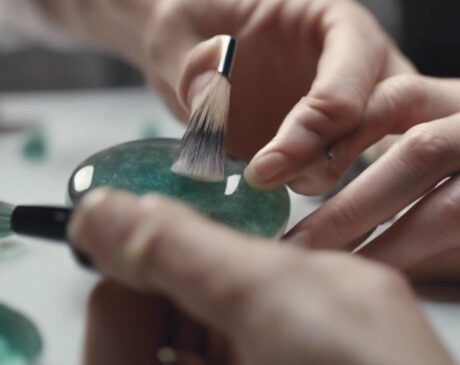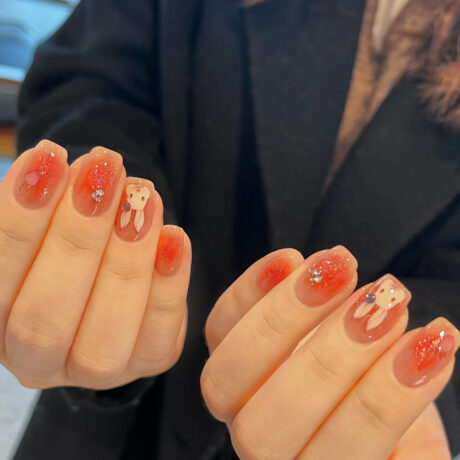What Do Nail Techs Hate?
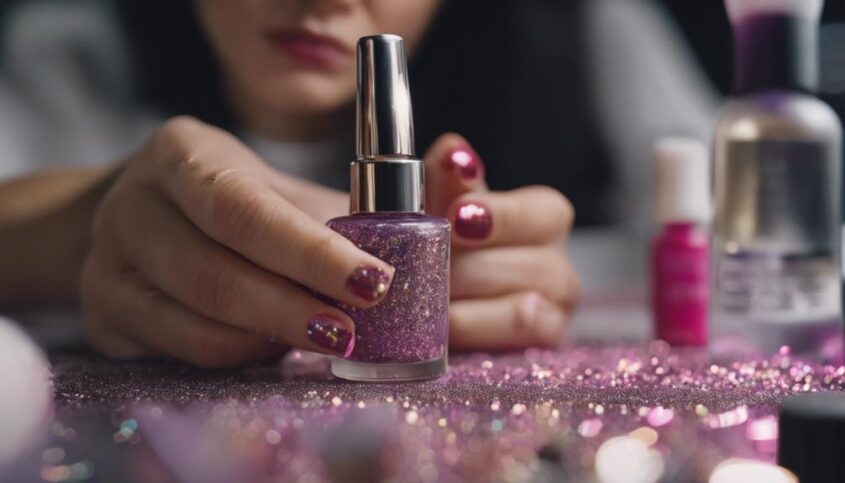
Nail techs dislike dealing with no-show clients that disrupt their schedules, rude behavior affecting their professional environment, and unsanitary habits compromising cleanliness standards. Constant nail biting weakens nails and hinders their efforts. Impatience during appointments can lead to compromised work quality and mistakes. Unrealistic design expectations, like intricate designs on short nails, also pose challenges. Lastly, poor tip etiquette can be demotivating for technicians who rely on tips as income supplements. Understanding these challenges can help clients create better experiences.
Key Takeaways
- No-show clients disrupt schedules and lead to lost income opportunities.
- Rude or disrespectful behavior affects the professional environment and morale.
- Unsanitary habits compromise cleanliness standards and risk germ transfer.
- Constant nail biting weakens nails, harms the nail bed, and raises hygiene concerns.
- Unrealistic design expectations, impatience, and poor tip etiquette are common frustrations for nail techs.
No-Show Clients
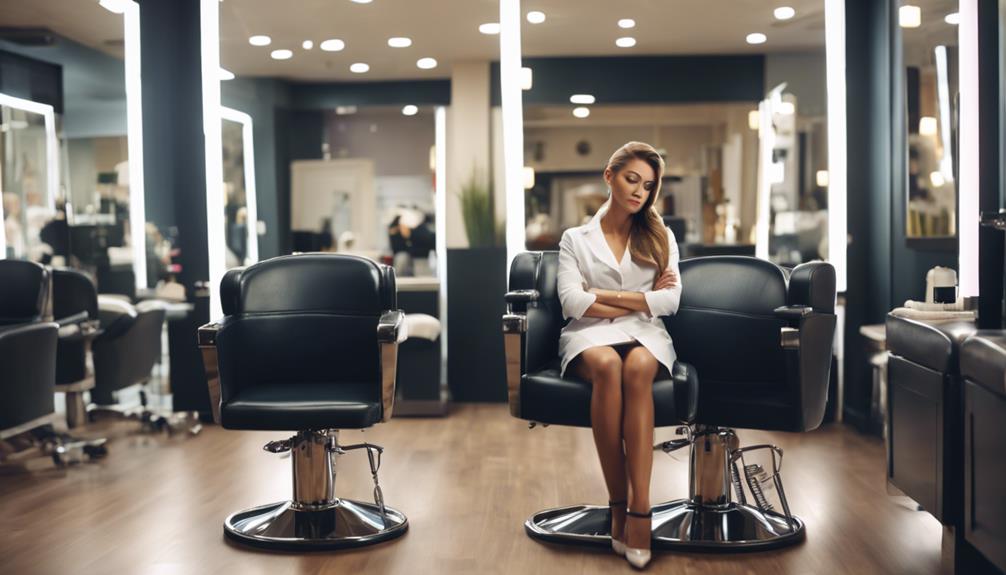
No-Show clients are a persistent source of frustration for nail technicians in the beauty industry. These professionals dedicate their time, skills, and energy to provide top-notch services and enhance their clients' appearance. However, when clients fail to show up for their appointments without prior notice, it not only disrupts the technician's schedule but also results in lost income opportunities.
Nail technicians rely on a carefully planned schedule to accommodate all their clients while ensuring the quality of their work. A no-show not only leaves gaps in their day but also affects the overall efficiency of their business. Additionally, it can be disheartening for technicians who genuinely care about delivering excellent service to clients.
To mitigate the impact of no-show clients, many nail technicians implement policies such as requiring deposits for appointments or enforcing strict cancellation policies. While these measures may help deter future no-shows, the underlying issue of clients not valuing the technician's time and effort remains a significant challenge in the industry. Ultimately, open communication and mutual respect between clients and technicians are essential to maintaining a harmonious and productive working relationship.
Rude or Disrespectful Behavior
Instances of rude or disrespectful behavior towards nail technicians pose significant challenges in maintaining a professional and respectful work environment in the beauty industry. Nail technicians take pride in their work and strive to provide exceptional service to their clients. However, encountering rude or disrespectful behavior can be disheartening and demotivating.
Being subjected to harsh language, impolite demands, or disrespectful attitudes not only affects the morale of nail technicians but also creates a negative atmosphere that can impact the overall salon experience for both clients and staff. It is essential for individuals receiving nail services to remember that nail technicians are professionals who deserve to be treated with kindness and respect.
While misunderstandings or frustrations may arise during appointments, it is crucial to address any concerns or issues in a courteous and constructive manner. Clear communication and mutual respect are key to fostering positive relationships between clients and nail technicians. By promoting a culture of respect and understanding, both clients and nail technicians can enjoy a more pleasant and harmonious salon experience.
Unsanitary Habits
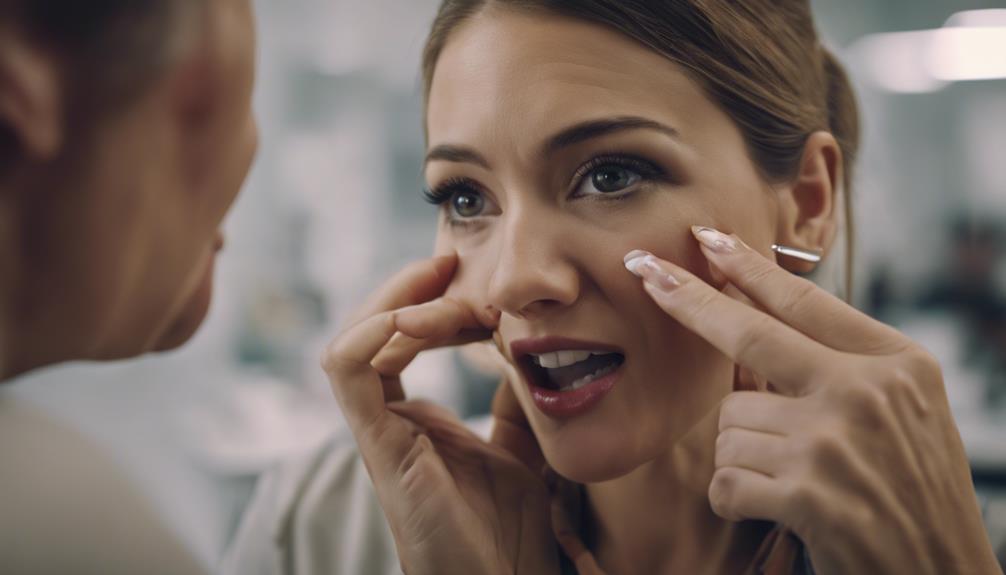
Maintaining proper sanitation practices is crucial in the nail care industry to uphold cleanliness standards and ensure the well-being of both clients and nail technicians. Nail techs despise unsanitary habits that can compromise the health and safety of everyone involved. One of the most detested practices is the reuse of disposable items such as nail files, buffers, or orangewood sticks. Each client deserves fresh and sterile tools to prevent the spread of infections.
Another unsanitary habit that irks nail technicians is the failure to wash hands properly. Dirty hands can introduce harmful bacteria into the nail salon environment, putting both clients and technicians at risk. Furthermore, neglecting to sanitize workstations between clients is a major concern. Proper disinfection procedures are essential to prevent the transfer of germs and maintain a hygienic space.
Constant Nail Biting
A common frustration for nail technicians in the industry is clients who persistently engage in the habit of nail biting, which can pose challenges to the quality and longevity of nail treatments. Nail biting not only affects the appearance of the nails but also raises concerns about hygiene and the risk of infections. This habit weakens the nails, making them more prone to breakage and causing the nail treatments to chip or peel off easily. Nail technicians strive to provide clients with beautiful and long-lasting nail enhancements, but constant nail biting hinders their efforts.
| Challenges of Constant Nail Biting | How It Affects Nail Treatments |
|---|---|
| Weakens nails | Increases risk of breakage |
| Harms nail bed | Reduces longevity of treatments |
| Hygiene concerns | Potential for infections |
| Affects nail appearance | Treatments chip or peel off easily |
| Hinders nail technicians' efforts | Decreases overall satisfaction |
Impatience During Appointments
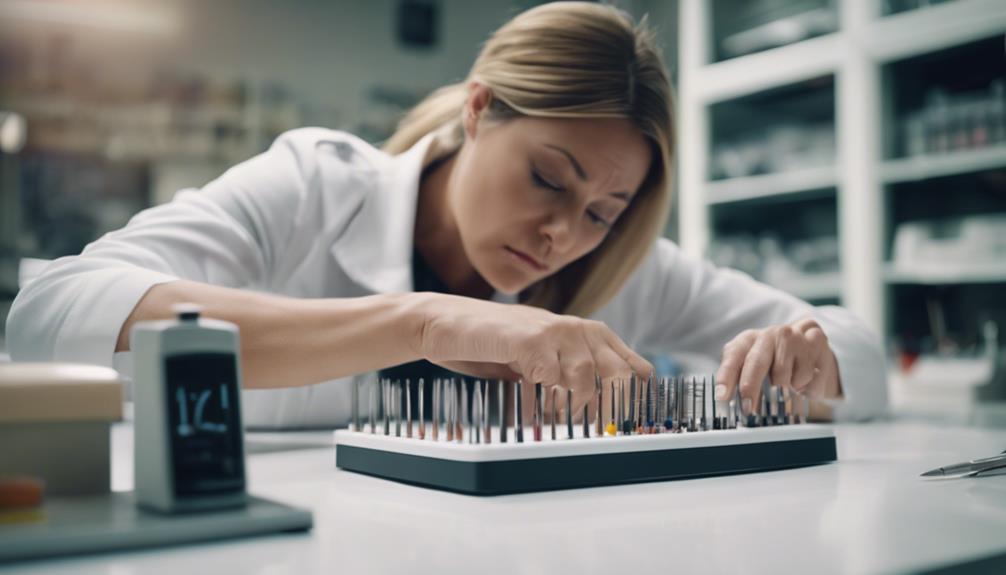
Impatience during appointments can disrupt the flow of a nail tech's schedule, causing delays for other clients who have arrived on time. Rushing through a manicure or pedicure due to impatience can compromise the quality of the work, leading to potential mistakes or unsatisfactory results. Patience from both the client and the nail technician allows for a smoother, more enjoyable appointment experience, ultimately resulting in better nail care outcomes.
Late Arrivals Disrupt
Punctuality is essential in the nail care industry, as late arrivals can disrupt the workflow of nail technicians and inconvenience other clients. Nail technicians meticulously plan their schedules to ensure each client receives top-notch service within the allotted time. When a client arrives late, it creates a domino effect, causing subsequent appointments to be delayed. This not only affects the technician's ability to provide timely service but also inconveniences other clients who may have appointments following the delayed one. Nail techs aim to create a calm and efficient salon environment where every client feels valued and receives the attention they deserve. Therefore, being punctual shows respect for the technician's time and dedication to providing exceptional service to all clients.
Rushed Work Compromises
During nail appointments, rushing through the service compromises the quality and precision that nail technicians strive to deliver. Impatience during appointments can lead to mistakes, uneven polish application, and improper nail shaping. Nail technicians take pride in their work and aim to provide clients with meticulous and flawless manicures and pedicures. When rushed, technicians may overlook crucial steps such as cuticle care, proper nail filing, or even sanitation practices, putting both the client and themselves at risk. Additionally, hurried work can result in dissatisfaction from clients who expect a relaxing and thorough nail service. To ensure the best experience for both technicians and clients, it is essential to prioritize patience and attention to detail during every nail appointment.
Patience Yields Better
Have you ever considered how patience can significantly enhance the quality of nail services provided during appointments? Impatience during appointments can lead to rushed work, compromising the overall outcome. Nail technicians require time to meticulously perform each step, ensuring a flawless result. Rushing through a service can result in uneven polish, smudges, or even accidental cuts. By allowing the nail tech to work diligently and with care, clients can enjoy a more satisfying experience and better results. Patience from both the client and the technician is crucial for achieving the desired nail look. Remember, good things come to those who wait, especially when it comes to receiving top-notch nail services.
Unrealistic Design Expectations
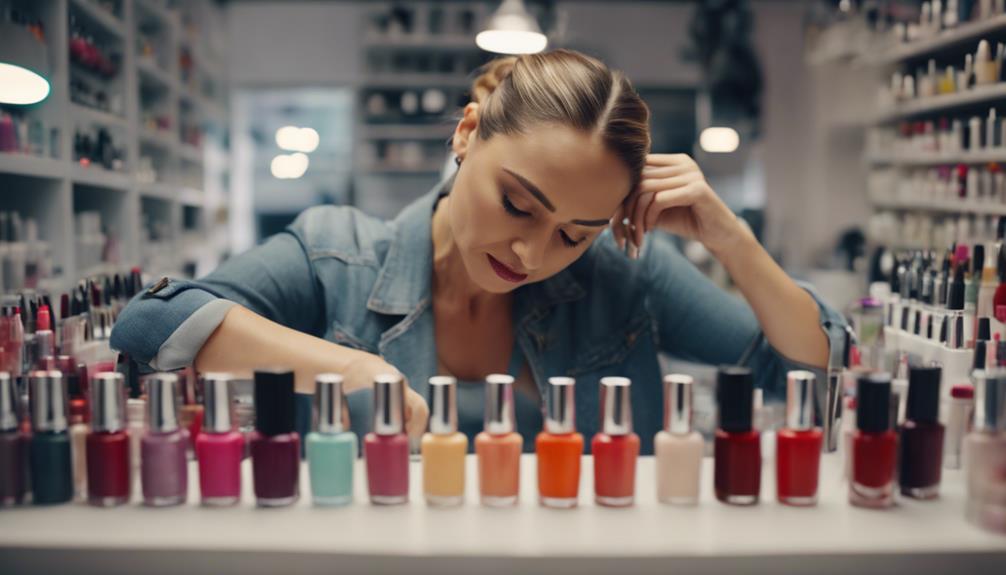
Meeting clients' expectations for intricate nail designs can often pose a challenge for nail technicians due to the intricate nature of the requested designs. Clients often bring in photos of elaborate nail art found on social media or request designs that may not be suitable for their nail length or shape. Nail techs strive to fulfill these requests to the best of their abilities, but unrealistic expectations can lead to dissatisfaction on both ends.
To illustrate some common unrealistic design expectations faced by nail technicians, below is a table showcasing a few examples:
| Unrealistic Design Expectations | Explanation |
|---|---|
| Extremely intricate designs requiring hours of work | Some designs are intricate and time-consuming, making it difficult to complete within a standard appointment time. |
| Expecting 3D elements on short nails | While 3D elements can enhance a design, they may not always be feasible on short nails due to limited surface area. |
| Requesting designs unsuitable for nail shape | Certain designs may not complement the natural shape of the client's nails, leading to a less-than-desirable outcome. |
| Wanting elaborate nail art on extremely short nails | Limited nail length can restrict the complexity and detail achievable in a design. |
| Asking for designs that don't suit their lifestyle | Some designs may be beautiful but impractical for clients with active lifestyles or certain professions. |
Poor Tip Etiquette
Navigating the realm of nail art services, nail technicians encounter challenges beyond intricate design expectations, including addressing the nuances of poor tip etiquette. Proper tip etiquette is an essential aspect of the client-technician relationship, reflecting appreciation for the technician's skill and service quality. When clients fail to tip appropriately, it can be disheartening for nail technicians who invest time and effort in providing exceptional nail care.
It is customary to tip nail technicians between 15% to 20% of the total service cost. However, some clients either tip inadequately or not at all, which can be demotivating for technicians striving to deliver outstanding results. Tips not only supplement their income but also serve as a form of acknowledgment for their hard work.
Nail technicians appreciate clients who understand the value of their expertise and show gratitude through generous tipping. By practicing proper tip etiquette, clients can contribute to a positive and mutually respectful environment within the nail salon, fostering a rewarding experience for both parties.
Frequently Asked Questions
How Do Nail Techs Handle Clients Who Constantly Change Their Minds?
In the realm of nail care services, adapting to clients who frequently alter their preferences is akin to painting on shifting canvases. By maintaining open communication, offering guidance, and showcasing flexibility, nail technicians can gracefully navigate such creative fluctuations with finesse.
Do Nail Techs Charge Extra for Fixing Broken Nails?
Nail technicians may charge extra for fixing broken nails, as it requires time and materials. This additional fee compensates for the extra work involved in repairing the nail and ensuring the client's satisfaction with the service provided.
Can Nail Techs Refuse Service to Clients With Contagious Conditions?
Nail technicians prioritize client safety and hygiene. They have the right to refuse service to clients with contagious conditions to maintain a clean and safe environment for all patrons. Communication and understanding are key.
What Happens if a Client Falls Asleep During a Nail Appointment?
If a client falls asleep during a nail appointment, it is essential for the nail tech to handle the situation with care and professionalism. They should gently wake the client, ensuring their safety and comfort throughout the service.
Are Nail Techs Trained to Handle Allergic Reactions to Products?
Nail technicians are trained to recognize and handle allergic reactions to products. They prioritize client safety and well-being, ensuring proper protocols are followed in case of any adverse reactions. Continuous education and awareness help them maintain a professional and safe environment.

